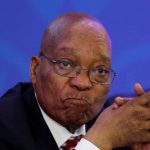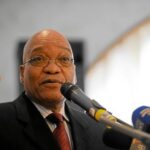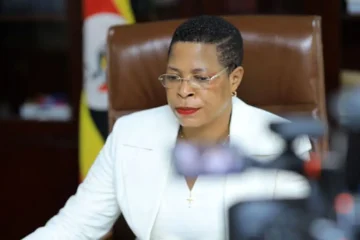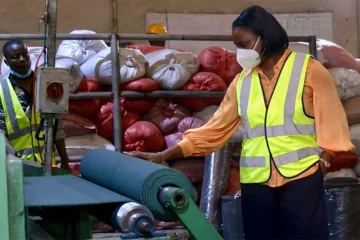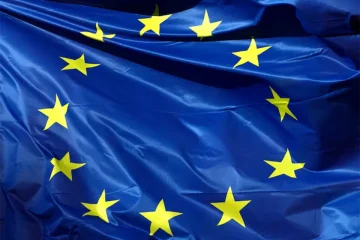AFRICAN MIRROR REPORTER
SOUTH Africa’s apex court – the Constitutional Court – has handed down a scathing criticism of Public Protector Advocate Busisiwe Mkhwebane’s professional conduct.
In dismissing her appeal against a decision which found that her final report which found that SA President Cyril Ramaphosa had misled Parliament, the court that Mkhwebane had made some “weighty errors”
In the judgment which was supported by six of his colleagues, Judge Chris Japhta found that Mkhwebane made errors on facts and in the law when she found that Ramaphosa had wilfully misled parliament about a R500 000 donation for his campaign as ANC president.
Japhta said instead of making the finding that the president did not wilfully mislead Parliament, the Public Protector changed the Executive Ethics Code.
The court found that there was no evidence that Ramaphosa had personally benefited from the donation made to his campaign by Bosasa, the company which has changed its name to African Global Operations.
Japhta said the nature and number of errors committed by Mkhwebane called into question her capacity to appreciate what the law requires of her when he investigates complaints.
Japhta said: “The Public Protector, like all of us, is fallible and mistakes are to be expected in the course of the exercise of her powers. But what is troubling in this matter is the series of weighty errors, some of which defy any characterisation of an innocent mistake. For example, giving the phrase “wilfully misleading” the meaning of “inadvertently misleading” for it to fit established facts. She disregarded uncontroverted evidence to the effect that the President did not personally benefit from the CR17 donations and stated that on the evidence placed before her, he benefited personally. This finding was made when there was simply no evidence to the contrary. These are some of the disconcerting features of the impugned report,” Japhta said.
Japhta said the errors made by Mkhwebane were surprising because the Public Protector was, by definition, a highly qualified and experienced lawyer. As required by law, she has no less than 10 years’ experience in the relevant field of law.
He said while the Public Protector has the leeway to determine the form to be followed in a particular investigation, her investigation must meet the basic benchmark of a proper investigation that is conducted with “an open and enquiring mind”.
“Here, the questions asked by the Public Protector led to the undisputed fact that the President had no knowledge of the donations to the CR17 campaign and that he did not personally benefit from those donations. An open and enquiring mind would have accepted those facts and would not have proceeded to hold, without any evidence, that the President had personally benefited from those donations. An open mind suggests that the Public Protector must be open to being persuaded to reach whatever conclusion justified by the facts. She may not approach any investigation with predetermined outcomes. An open and enquiring mind was not displayed here despite the reference to Mail & Guardian in the Public Protector’s report, as one of decisions she followed. On the contrary, she made findings that were not supported by the facts and it appears that she was “unduly suspicious” of the person she was investigating. Consequently, the investigation was improperly conducted,” Japhta said.
Mkhwebane received support from Chief Justice Mogoeng Mogoeng, who wrote the minority judgment that found that Ramaphosa had misled Parliament and the Public Protector.
Mogoeng said there was a disturbing tendency by some judges to, presumably without intending undue harm or injustice, unduly magnify virtually every error of the Public Protector, real or mistakenly perceived. This, he said, was surprising.“Because judges, with more experience as practitioners before their elevation to the Bench, and with more years of service as Judges than the ten years’ minimum requirement as an Advocate or the mere fact of being a Judge regardless of how long to be appointable as a Public Protector, have committed similar or more serious errors. And we are not as harsh on them, or should I say on ourselves, and rightly so.
“By way of example, I presided in a matter in which my wife was appearing on behalf of the State. And that was in S v Dube. The Supreme Court of Appeal correctly and most courteously held that I should have granted the recusal application necessitated by the very appearance of my wife before me. Harms JA’s son appeared before a Supreme Court of Appeal panel of which he (the father) was a member73 and so did Chaskalson P’s son in this Court. With the benefit of hindsight, I have realised that a reasonable apprehension of bias would most likely be entertained in matters of this kind. Each of us, should therefore have recused himself without the need for an application to that effect. As Judges, we should therefore always be alive to the reality that elevation to high judicial office does not have the inherent consequence of clothing any of us with a mantle of infallibility. For this reason, when we criticise others we would do well to be alive to our own fallibility. But, more examples are necessary to drive the point home.”
Mogoeng said there could be no doubt that the Public Protector was wrong in certain respects of her report. For that, he said, she deserves to be dealt with appropriately. “And it is for this reason that I have to reiterate my support for Jafta J’s assertion that she went overboard in making the supervisory order against the Police, the National Prosecuting Authority and Parliament. It was wrong of her to conclude that the President deliberately misled Parliament, and to use “wilful” and “inadvertent” interchangeably when the two are mutually exclusive. The same applies to aspects of her remedial action, alluded to above, that manifest some overzealousness,” Mogoeng said.
The Chief Justice disagreed that Mkhwebane amended the Executive Members Code without authority.
“But, returning to the thrust of my concern, it cannot be correct to brand virtually everything she did in line with her constitutional and statutory obligations to expose and help root out unethical conduct, as shockingly wrong and worthy of strong criticism and outright rejection. That, in my view, constitutes the magnification of her errors that courts should, as a way of distinguishing themselves from the media, commentators or analysts, the general public or the so-called court of public opinion, be deliberate and intentional about steering clear of. After all, that is what fidelity to our oath of office demands of us, all the time. It bears repetition that all litigants, practitioners and witnesses deserve only the measure of criticism that we, as Judges and Magistrates, would be happy to be recipients of under similar circumstances. And that applies with equal force to the Public Protector.”



